Wounded Albanese government must get back on track as soon as possible
A wounded Albanese government has to address the electorate’s concerns – and fast.
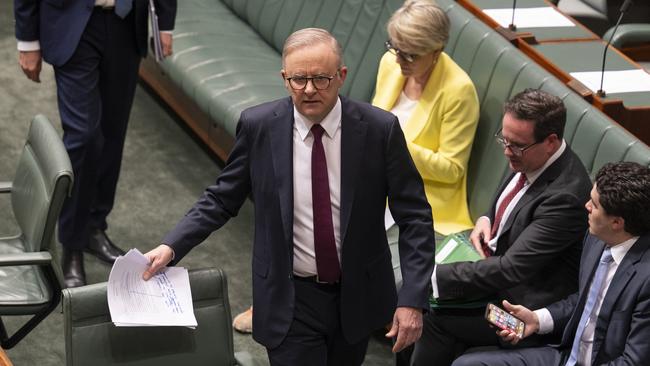
The Prime Minister’s abject failure on the Indigenous voice to parliament and executive government referendum has up-ended his political campaign against Peter Dutton, created unsettling and dangerous frustration, and made it impossible for Albanese to move on quickly to a post-voice agenda.
There is an obvious and genuine disappointment, almost grief, from Albanese shown in his parliamentary performance in the first week after the crushing No vote exposed his miscalculations, misjudgment and disconnection from the electorate. But, unlike the Indigenous leaders he allowed to dictate an unachievable model for Indigenous affairs, who have gone into a silent mourning, Albanese can’t remain silent, can’t hide and must immediately address the challenges to the affairs of all Australians.
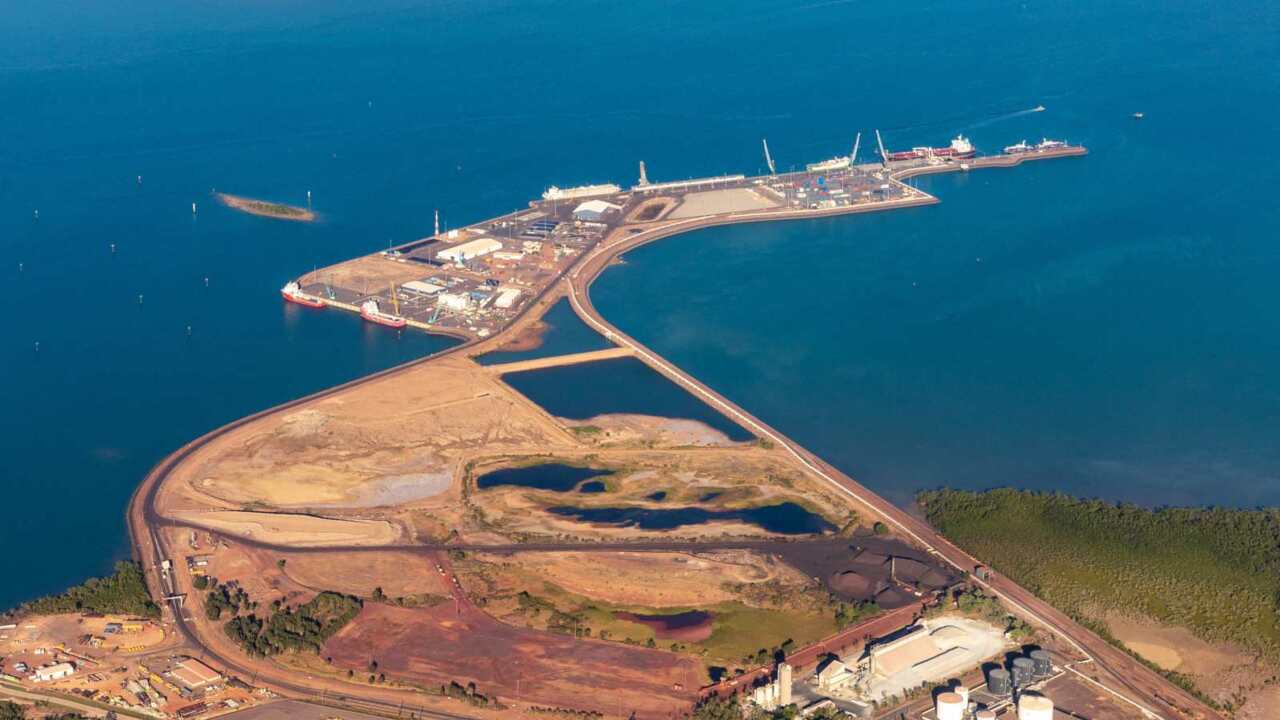
As leader, Albanese also is required to get the Labor government back on track as soon as possible, with the clear and growing danger of more global crises making economic hard times even harder and a swag of domestic policies that are unpopular and behind schedule.
Those election promises that have been delivered in the first half of the first term are wearing thin, have targets well into the future and have been tarnished by the distraction of the referendum.
This week’s nervous hiatus cannot be allowed to continue in the interest of the government and the nation.
Albanese needs to get back to basics and signal a new agenda simultaneously.
Not least, within the new agenda there has to be a credible alternative for lifting the burdens of disadvantage within Indigenous communities that even Albanese concedes is now what everyone wants, and even No voters don’t want more of the same.
All of this has to be achieved quickly because, as ludicrous as it may seem, the first-term Albanese government is running out of time and is ill-placed to reset what should be a mid-term reinvigoration of politics and policy.
Consider this: there are only two parliamentary sitting weeks this year before the long Christmas-summer break, when many Labor MPs will be returning to electorates that have rejected Labor’s first priority from election night.
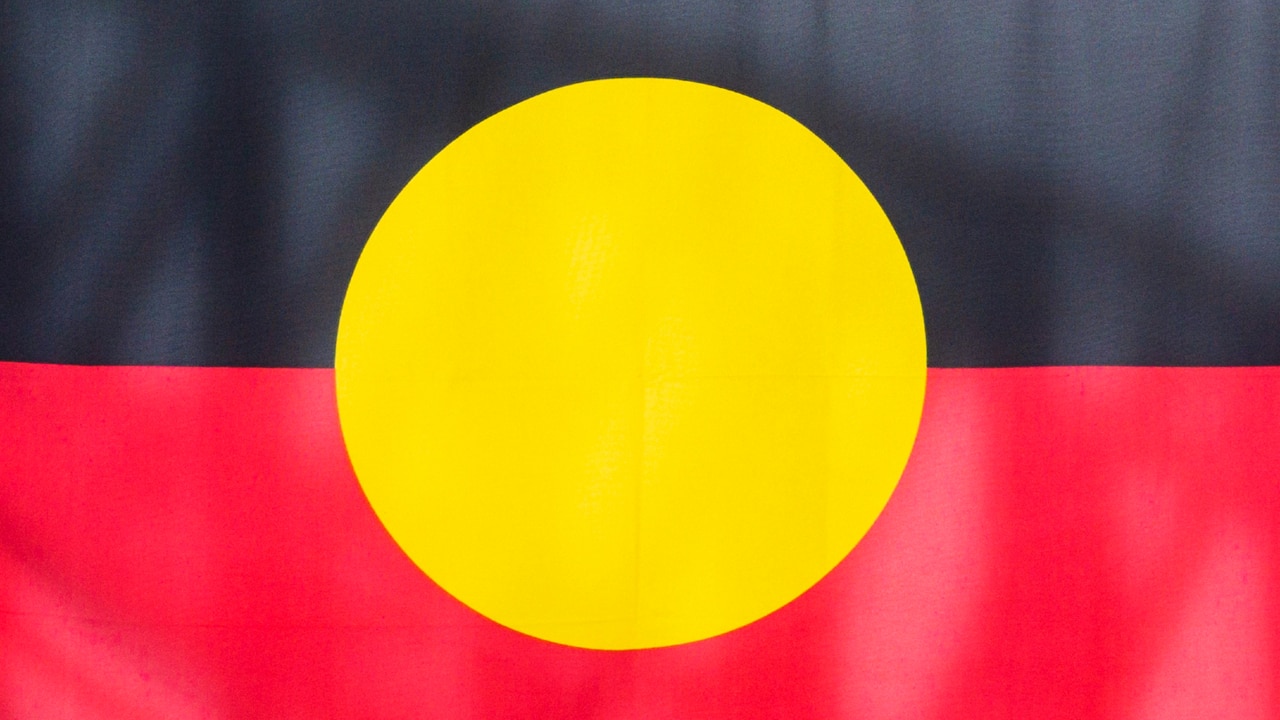
The referendum was rejected with a deadly silent and determined intent that easily can be turned into a hostile partisan vote against the ALP on other issues.
Further, from the first sittings in February next year it’s less than seven months to when the next election can be called for August 3, 2024, and just more than a year until the next election in normal circumstances must be called for May 17, 2025.
This means that after the next two weeks of parliament, Labor – again without redress to special budgets or extraordinary election alternatives – has just one budget and fewer than 20 parliamentary sitting weeks before the election must be called at the beginning of April in 2025.
Parliamentary sitting weeks are important not only for the legislative process but also for the setting of a political agenda, a demonstration of leadership, and to energise and enthuse backbench MPs.
Albanese’s decision to cut parliamentary sittings further next year reduces the risk of political exposure, despite his pledge of more transparency, but it also reduces the chance to set the agenda.
Albanese pledged to be a prime minister who wouldn’t waste time, but since May last year he has appeared distracted and obsessed with the voice to parliament, which has turned into the complete opposite of what he had planned would be the Opposition Leader’s fate.
After spending so much time and political capital on a disastrous plan for change to the Constitution and government, Albanese and Labor have to convince the electorate it wasn’t really the priority and demonstrate it was the economy all along.
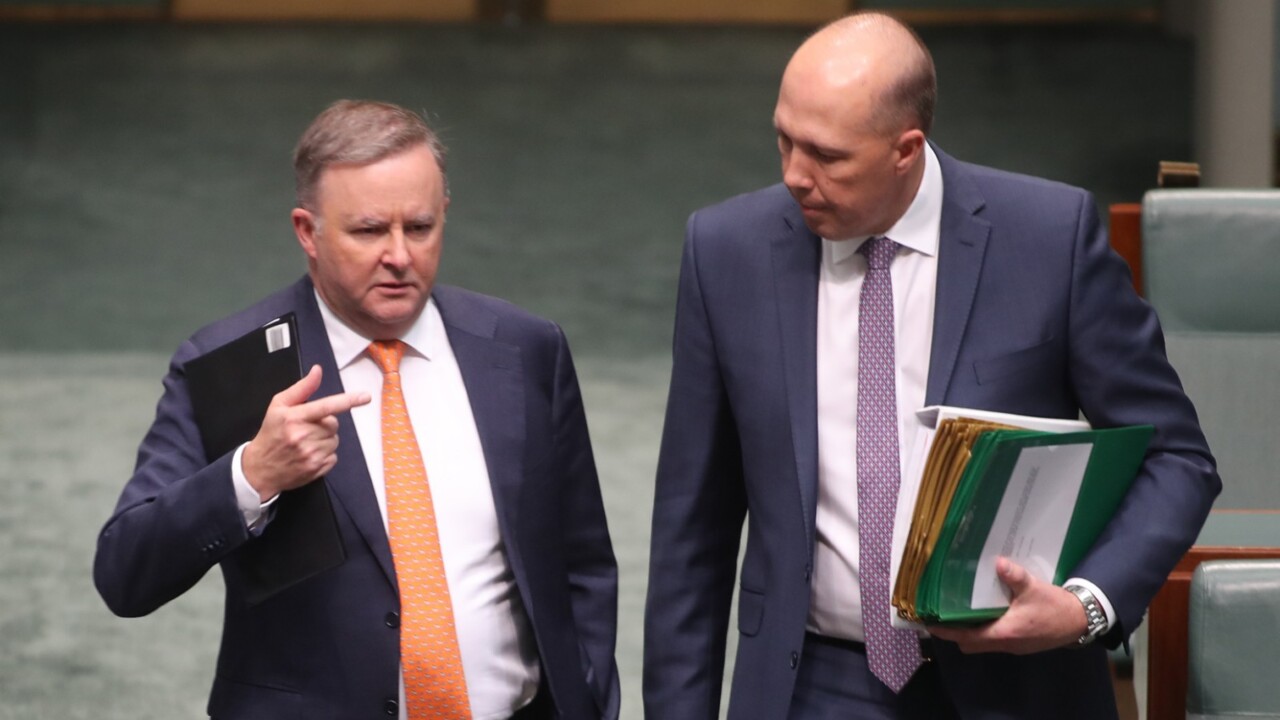
In parliament this week Albanese was off-balance and unsettled, driven to some bizarre responses and trying too hard to damage Dutton. Albanese’s response to the referendum loss was not helped by the traumatic terror attacks on Israel that bred an emotional atmosphere riven by ideologies.
Albanese, while perhaps tardy and less certain than he should have been in his initial response to the Hamas terror attacks, did work with the opposition on a bipartisan parliamentary response. But, again, with a frisson of leadership uncertainty his Labor colleagues diverged to more emphatic positions on both sides as they broke ranks.
Albanese’s referendum argument that he had been doing only what Indigenous leaders wanted left him hostage to the Indigenous leadership’s decision on what to do about the outstanding Uluru issues of treaty and a truth-telling Makarrata commission. The Prime Minister is not going to be able to walk away from the referendum wreckage and continued distraction until he makes a decision or is allowed to make a decision.
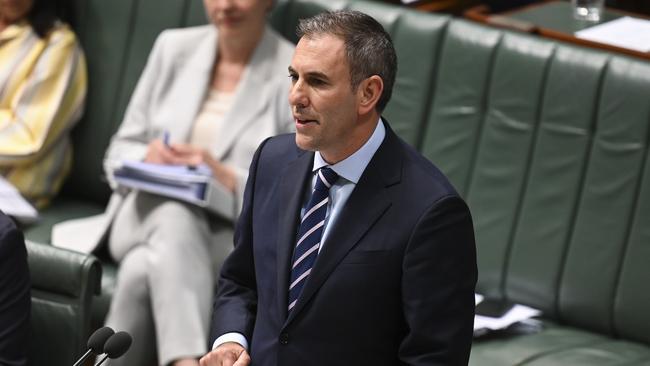
Even mild-mannered Deputy Prime Minister Richard Marles looked more determined and clearer eyed than his leader in answering Coalition questions on the referendum and the commission.
Jim Chalmers – who campaigned for the voice in his Queensland home state against a vast tide of discontent – wasted no time in declaring the economy and cost-of-living pressures are Labor’s main priority.
Within 48 hours of the defeat the Treasurer declared: “Even with the referendum campaign and conflicts in the Middle East and Europe dominating the headlines, the Albanese government has maintained its primary focus on bread-and-butter issues affecting Australians.
“We know cost-of-living pressures are hurting many households and, more importantly, we’re acting to make things a little easier. That’s why our highest priority is rolling out billions of dollars in targeted cost-of-living relief that is easing the pressure on everyday essentials for middle Australia.”
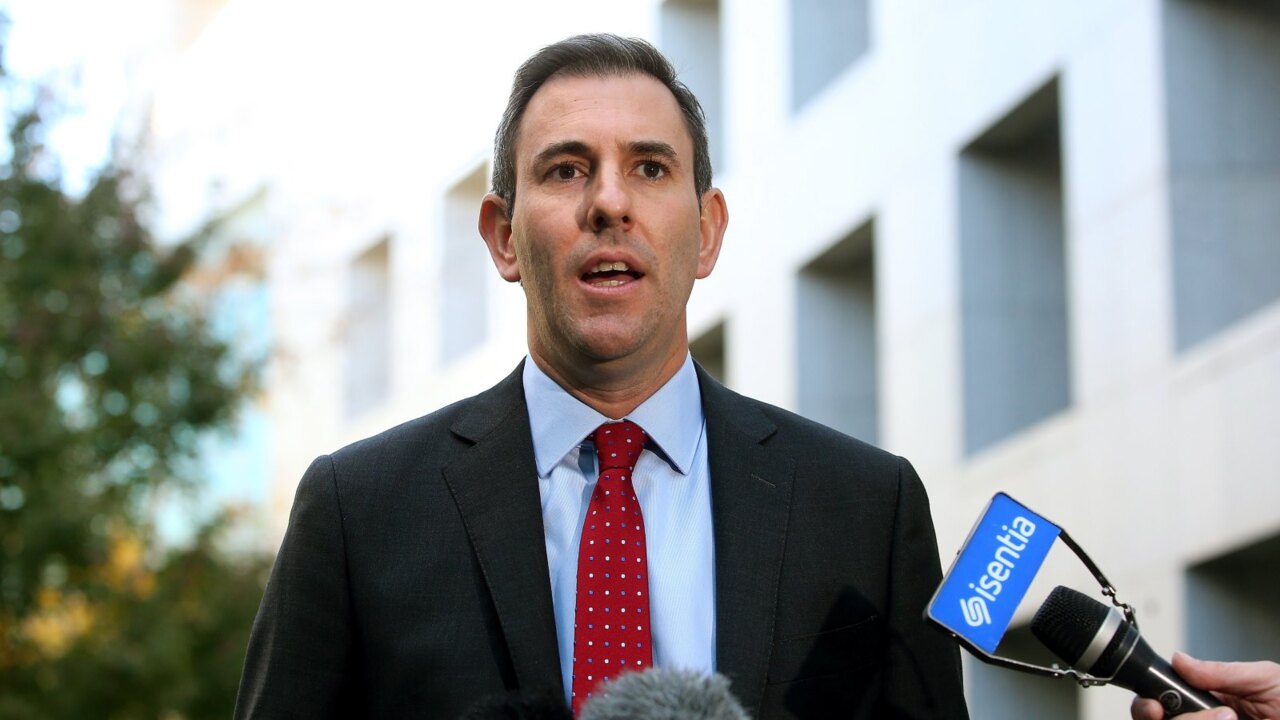
But the first Treasurer since Peter Costello to craft a budget surplus can see the warning of the new governor of the Reserve Bank of Australia, Michele Bullock, that global insecurity threatens to send up the price of oil and energy and “normalise high levels of inflation”, could lead to another rate hike.
Petrol and food prices are still rising, gas and electricity prices continue to rise despite Labor’s promises, and another interest rate rise before Christmas would be devastating for housing costs.
Chalmers rightly points to a budget surplus and jobs growth, and lists the government’s 10-point plan. But housing results are years away, wages are still not keeping pace with inflation and new agendas from his colleagues Tony Burke and Chris Bowen on industrial relations and climate change are riling business, industry and households. Even the enhanced training and skills announcement is marred by BHP’s claim the industrial relations changes will stop apprentice training.
Budget repair and economic growth are both under threat and here Government Services Minister Bill Shorten will have to deliver on the dire task of reforming the colossal drain of the National Disability Insurance Scheme to help demonstrate real economic management and a new agenda.
The failure of the referendum has changed the dynamics of the federal political balance and electoral cycle and Albanese must act – and fast – to avoid adverse consequences.


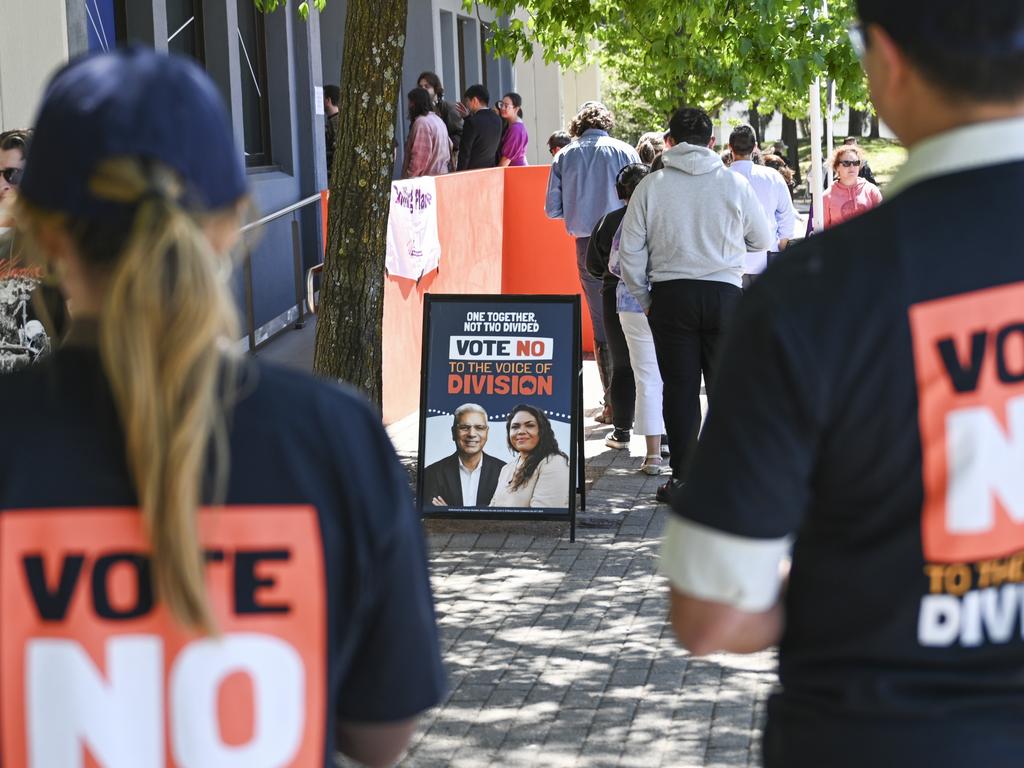
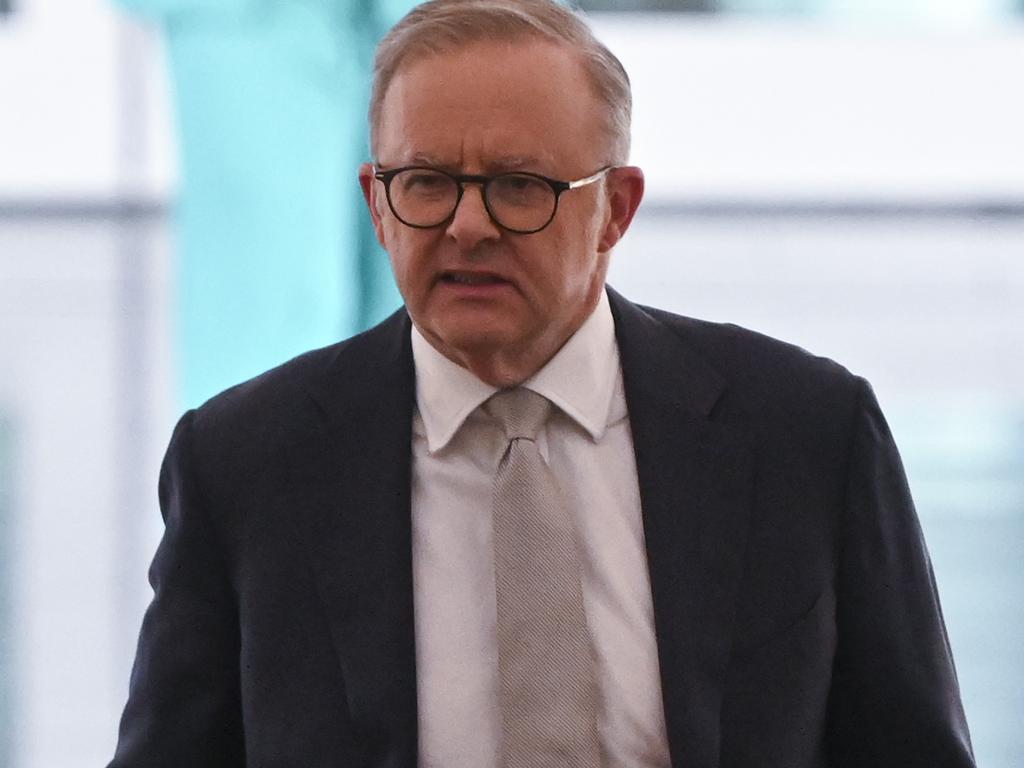

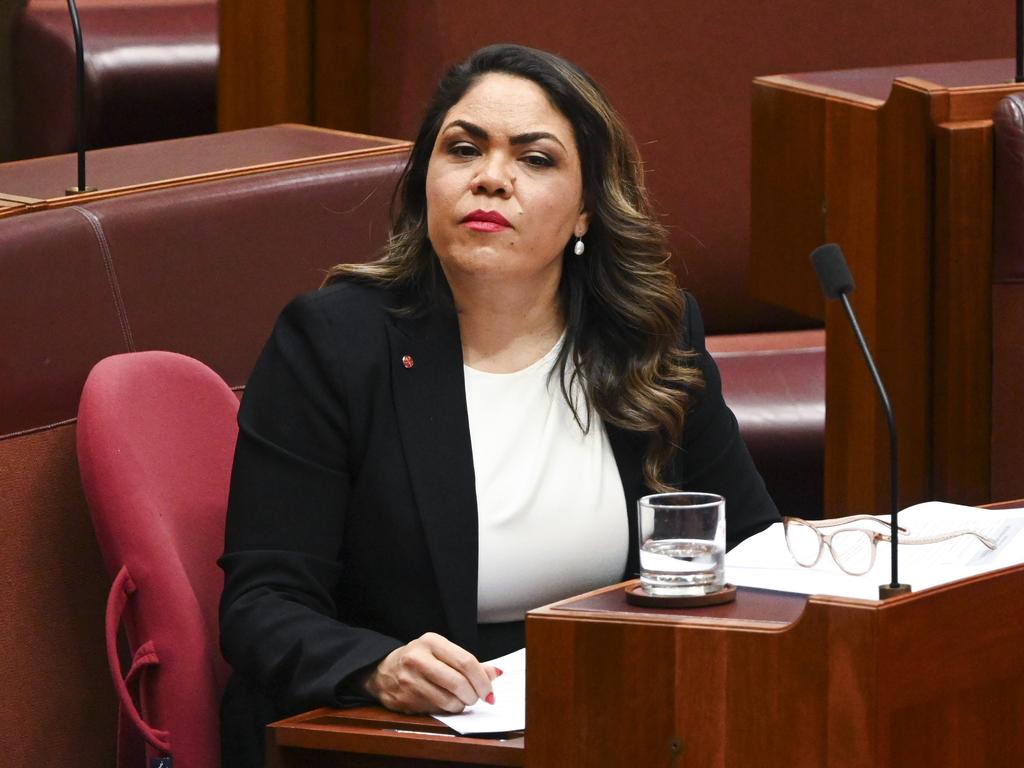


Anthony Albanese is showing signs of political shock amid rising concerns within Labor ranks that the first half of the government’s term has been derailed, MPs are now disconnected from their electorates, and voters see them as failing to address their priorities of managing the economy and cutting the crippling cost-of-living pressures on households.